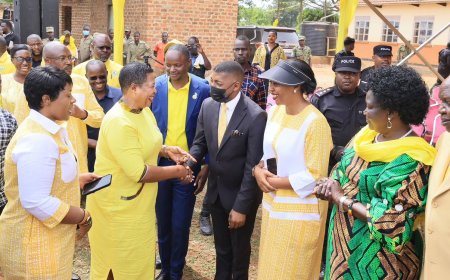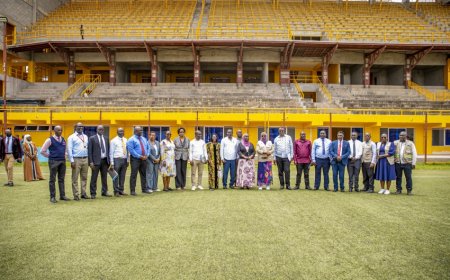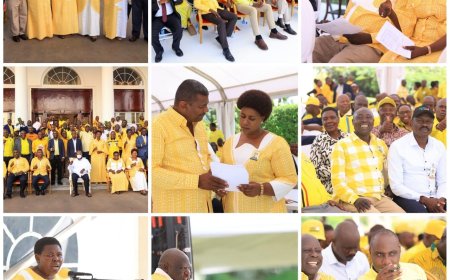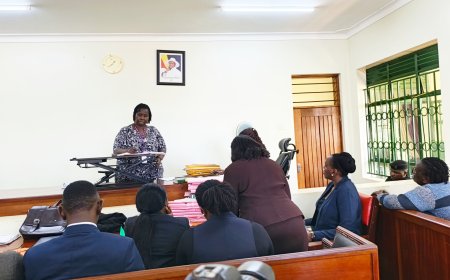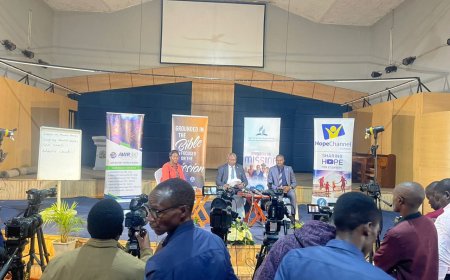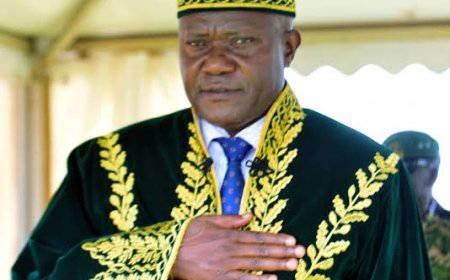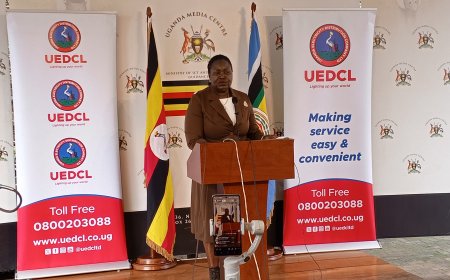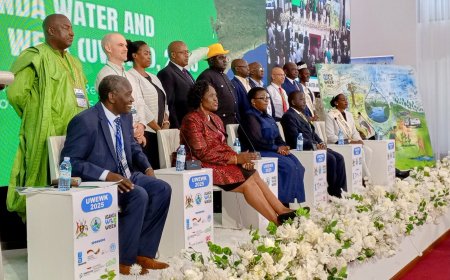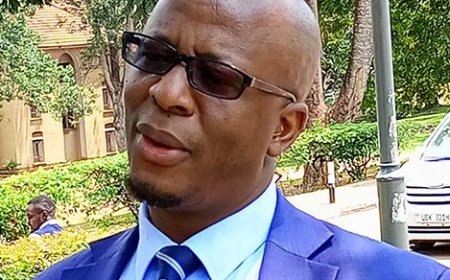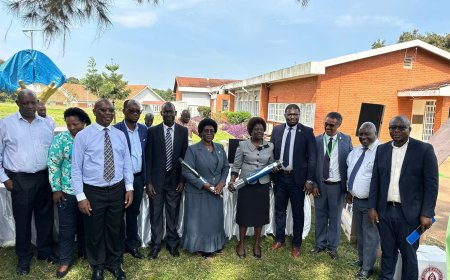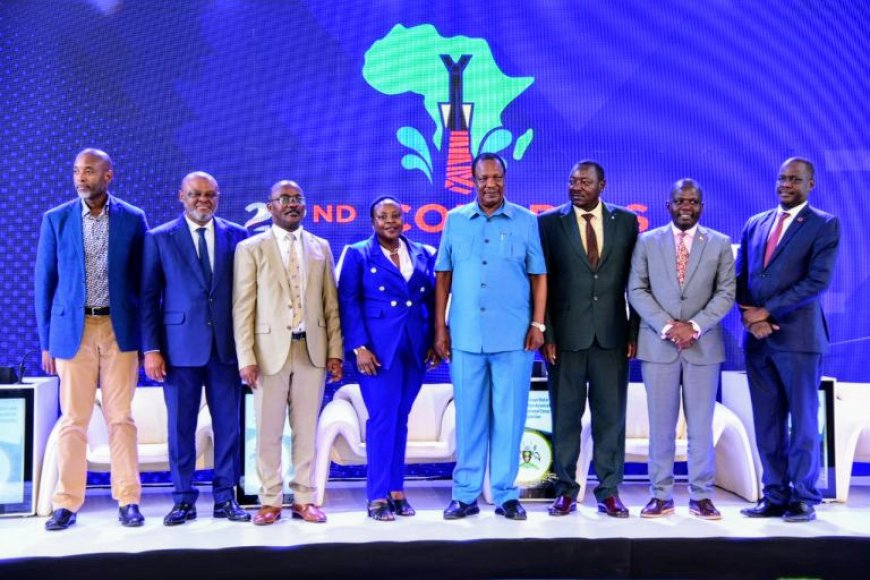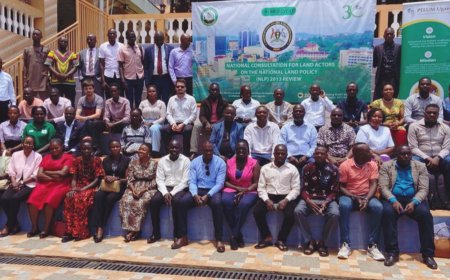Bamasaaba Cultural Institution Pledges Partnership with UNDP to Promote Tree Planting Across Masaabaland
Dr. Mwambu made the pledge during a high-level stakeholder meeting convened by UNDP in Kampala.
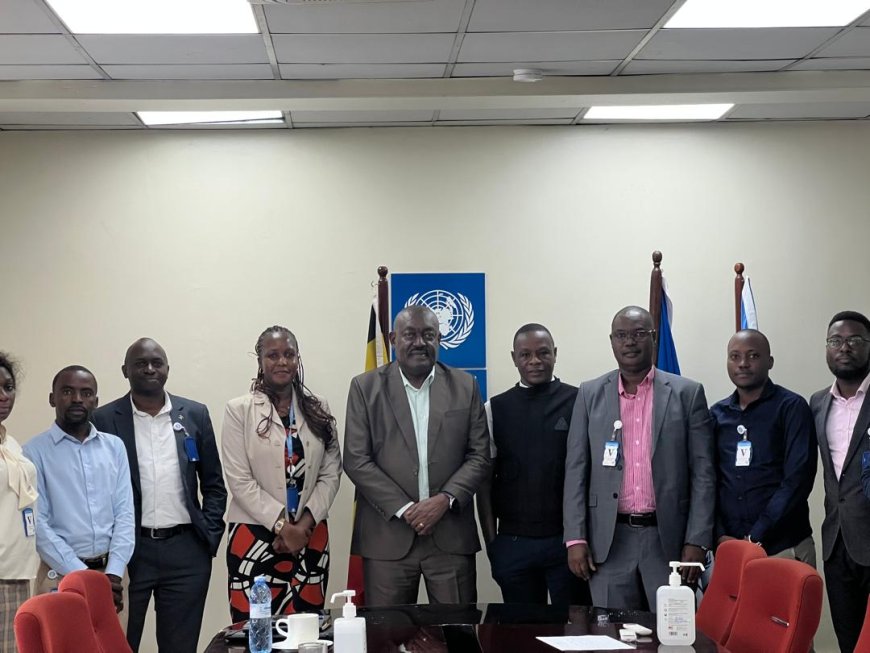
The Prime Minister of the Bamasaaba Cultural Institution, Rt. Hon. Dr. Paul Mwambu, has pledged the institution’s full commitment to partner with the United Nations Development Programme (UNDP) in advancing afforestation and environmental conservation across Masaabaland.
Dr. Mwambu made the pledge during a high-level stakeholder meeting convened by UNDP in Kampala. The gathering brought together key stakeholders from Uganda’s cultural institutions and government agencies, including representatives from the Ministry of Lands and the National Forestry Authority (NFA), to strategize on youth-led climate action initiatives with a focus on tree planting.
In his address, Dr. Mwambu emphasized the crucial role cultural institutions can play in mobilizing communities for environmental protection. He noted that the Bamasaaba Cultural Institution has access to extensive land holdings, particularly along cultural trails and heritage sites, which can be utilized for afforestation programs.
“We shall mobilize our clan chairpersons and ensure the youth in Masaabaland are at the forefront of this afforestation campaign. This is their future, and it starts with trees,” said Dr. Mwambu.
He further revealed that the institution plans to cascade the afforestation agenda down to its grassroots structures, beginning with clan leadership. The initiative, according to the Prime Minister, will be youth-driven to ensure sustainability and generational impact.
The Bamasaaba delegation at the meeting included Steven Masiga, the official spokesperson of the Cultural Institution. They joined other prominent cultural representatives, including Hon. Walter, Deputy Prime Minister of the Acholi Cultural Institution, and Madam Teddy Nabakooza, Lands Officer from Buganda Kingdom.
UNDP officials led by environmental expert Dr. Tom Sengalama, Youth and Innovations Officer Madam Mercy Kayodi Melodi, and sustainable development advocate Monica A. Kullo, stressed the importance of integrating traditional cultural systems into national and global climate strategies.
“Culture has the power to influence mindsets and behavior. If young people take the lead in tree planting, they not only preserve the environment but also inherit leadership roles in sustainability,” said Mercy Kayodi.
The UNDP team lauded the proactive role played by the Buganda Kingdom in allocating land for afforestation and expressed hope that other cultural institutions, such as the Bamasaaba, would champion similar efforts. The meeting underscored the significance of youth engagement and the unique ability of cultural leaders to mobilize communities for climate action at the grassroots level.
As the world grapples with the consequences of climate change, this partnership signals a renewed effort to localize sustainable development goals and leverage traditional authority structures in environmental stewardship. The Bamasaaba Cultural Institution’s pledge is a bold step towards transforming Masaabaland into a green corridor, powered by youth and protected by cultural heritage.



